Tag: classroom
-
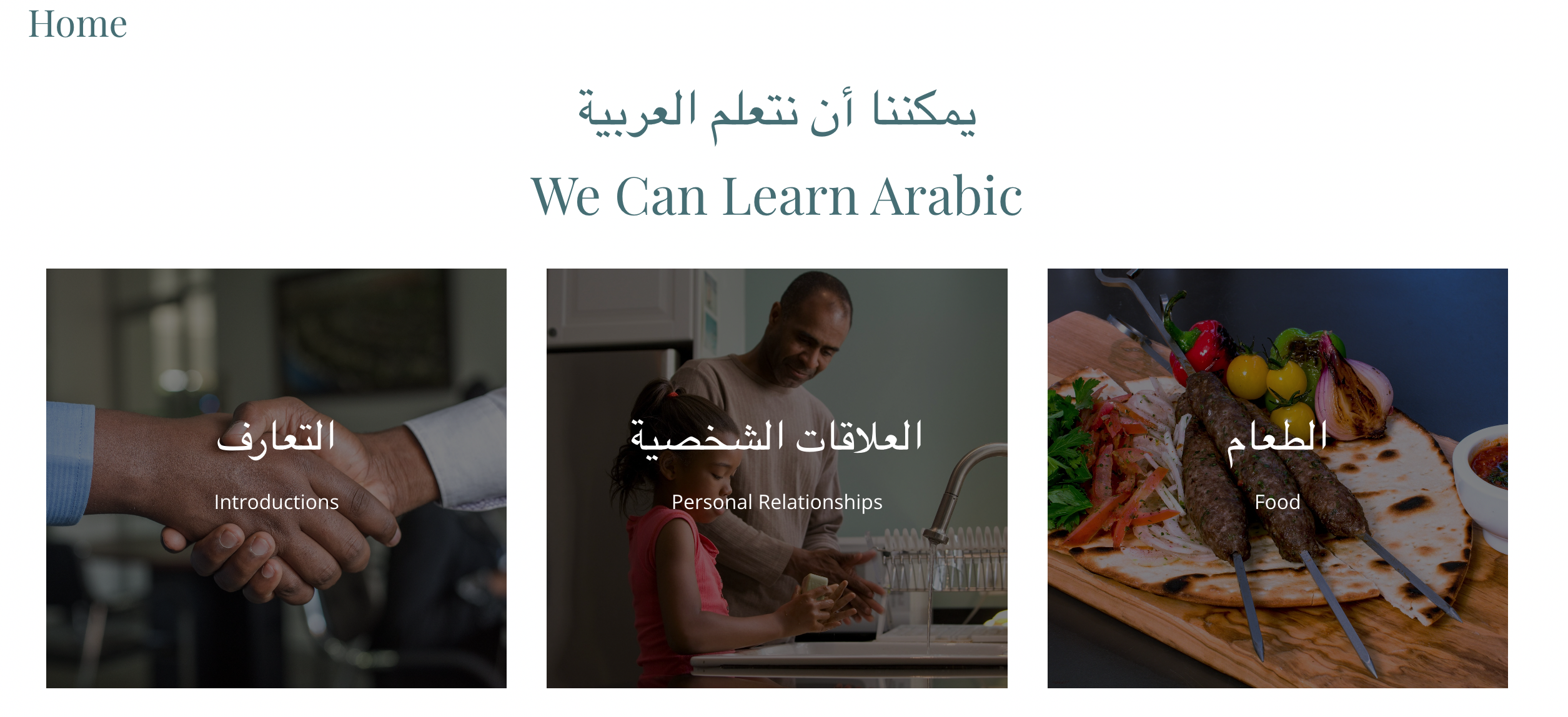
We Can Learn Arabic site updates
When we launched the We Can Learn Arabic website in 2020, one of the most exciting aspects was the ability to make regular updates as we test the materials in class. We added new units and made tweaks to the activities in 2020 and 2021. In Summer and Fall 2022, as part of our research…
-
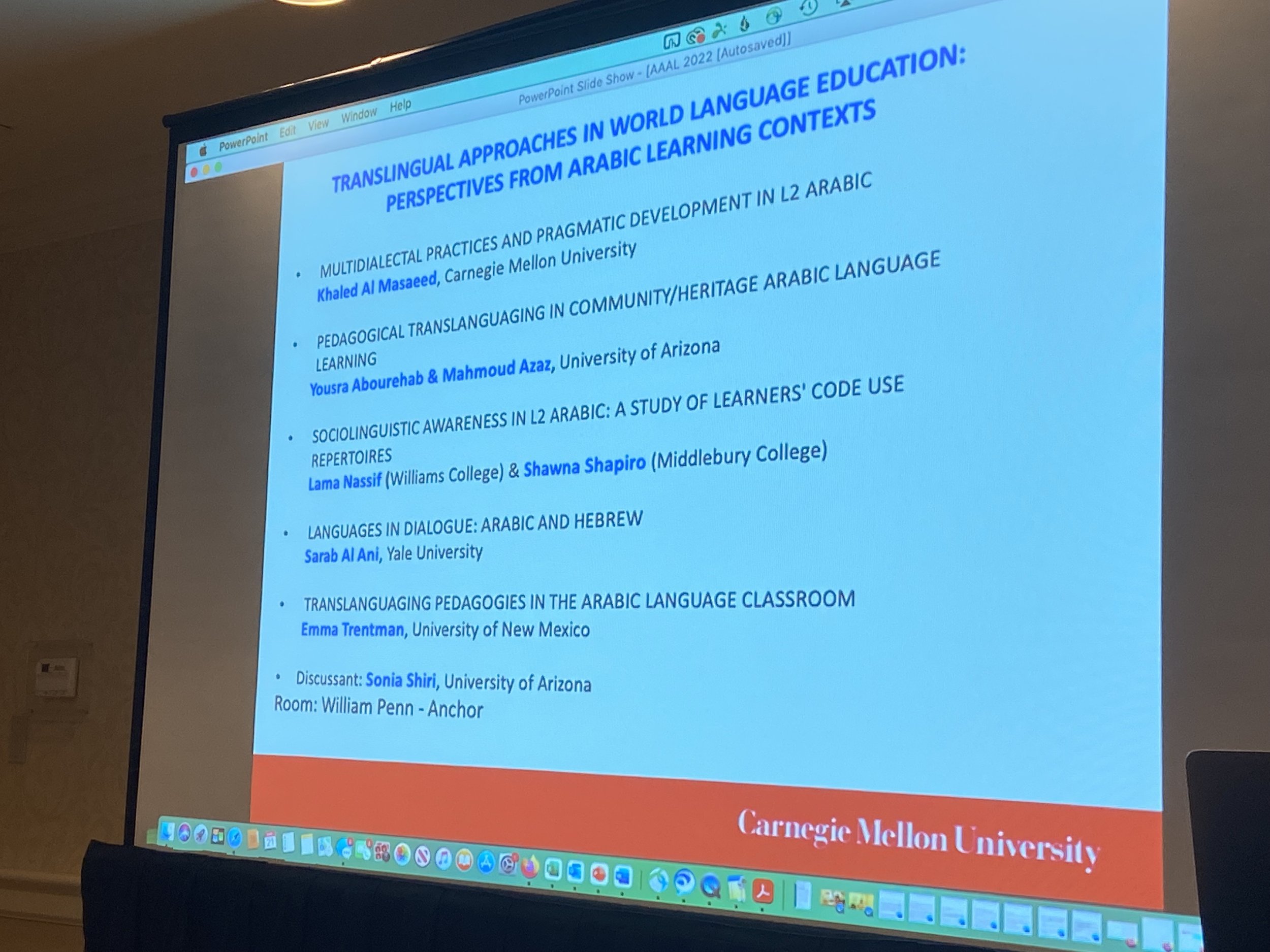
Translingual Approaches in World Language Education: Perspectives from Arabic Learning Contexts
A couple of weeks ago, I co-organized a colloquium with Khaled Al Masaeed at the American Association of Applied Linguistics Conference titled “Translingual Approaches in World Language Education: Perspectives from Arabic Learning Contexts”. Although I have attended the AAAL conference most years since 2007, and it is probably my favorite conference, there are usually only…
-

Variation and Standardization in the Language Classroom: Are We Asking the Wrong Questions?
Variation is inherent to languages and language users, yet is it often the subject of consternation in the language classroom, especially at lower levels. Essentially, the questions center around which variety to teach? Can we teach multiple varieties? Will this confuse students? Will they understand how to use them? What if they mix varieties? Per…
-
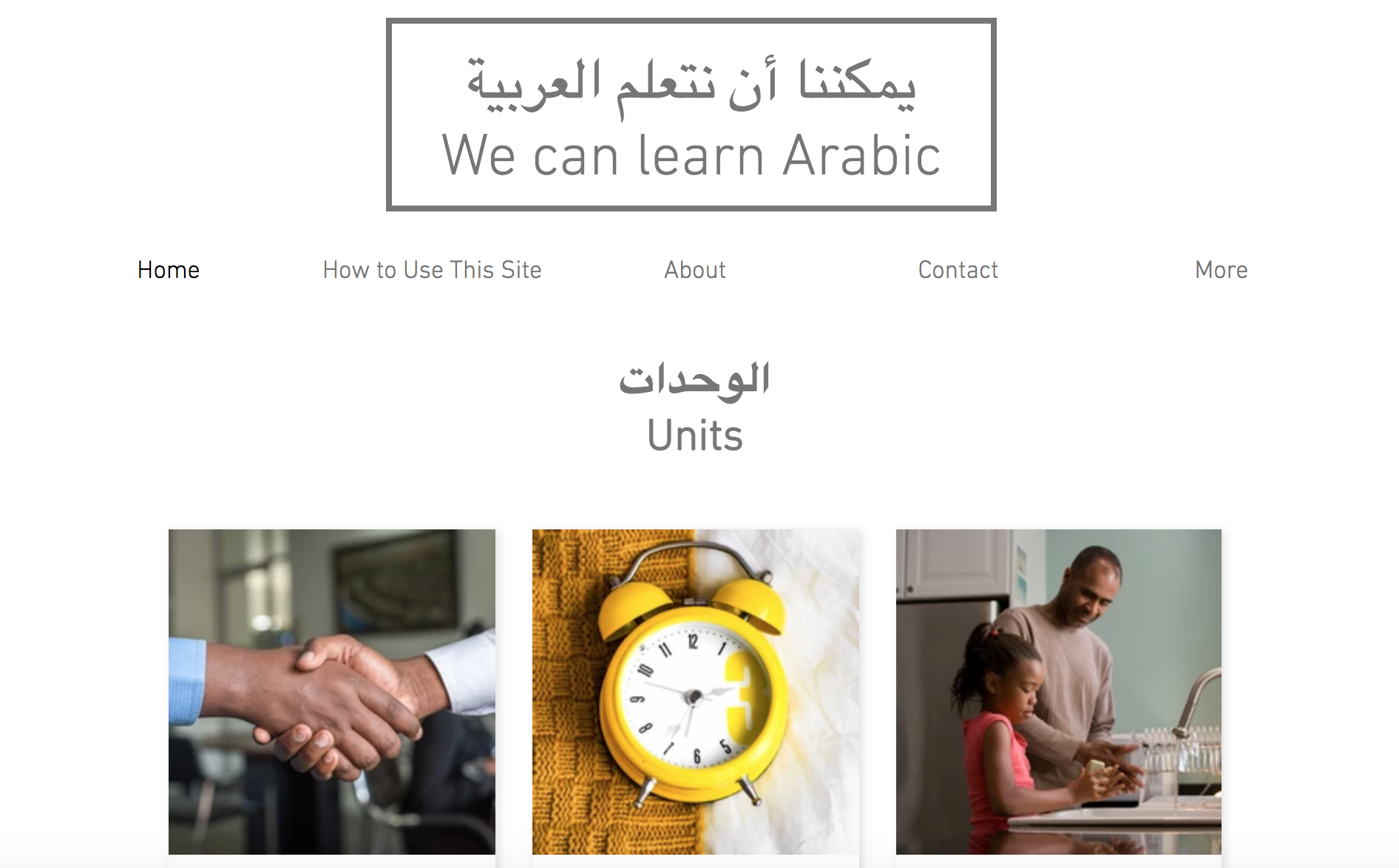
We Can Learn Arabic Website: Spring Update
Last Fall, I mentioned that my colleagues Heather Sweetser, Abdullah Serag, and I had launched We Can Learn Arabic, an open access website for Arabic learners at beginning and intermediate levels. This is the culmination of six years of moving away from a textbook in our lower level classes, as well as many of the…
-
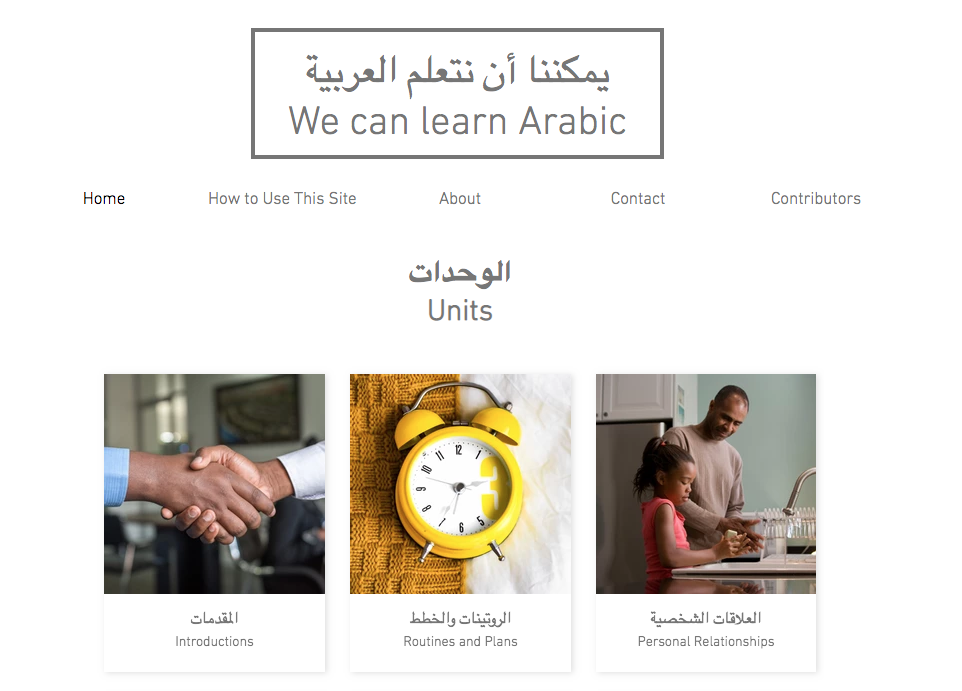
Introducing: the We Can Learn Arabic website!
As I’ve detailed in my curriculum development posts over the last two years, we have slowly been replacing our textbook with our own materials, generally based on texts we find on the internet or create ourselves. Although I’ve frequently been asked when we will make our own textbook, I’ve actually never been interested in making…
-
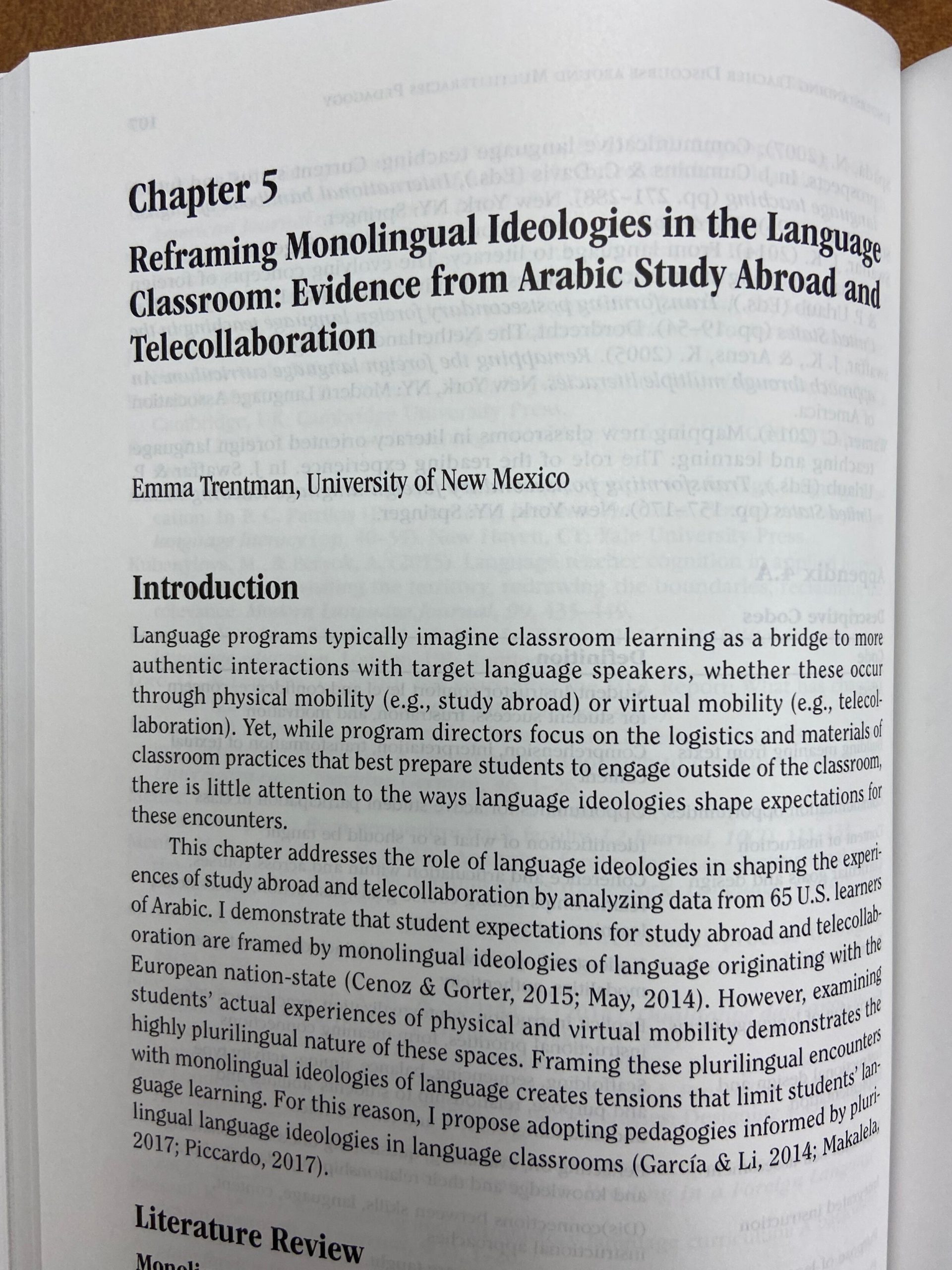
Reframing Monolingual Ideologies in the Language Classroom
Wednesday is the one day I teach in person this semester, and this past Wednesday was the first time I’d been to my office on campus since March. I was excited to discover the 2019 volume of the American Association of University Supervisors, Coordinators, and Directors of Foreign Language Programs (AAUSC) in my mailbox! The…
-
Black Scholars in Study Abroad and Language Teaching
My blog is normally on break for the summer, but I’m coming off this break temporarily to share some of the brilliant work by Black scholars that is central to my research and teaching. The protests surrounding the murder of George Floyd have led to a stronger interest in understanding systemic racism among White people,…
-
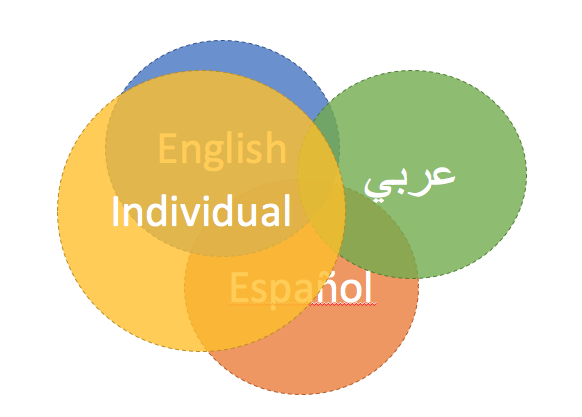
Plurilingual and Translanguaging Approaches in the Intermediate Arabic Classroom
Last weekend, I had the opportunity to attend the Intercultural Communication Conference in Tucson put on by CERCLL. I presented with my colleague Heather Sweetser on our attempts to implement plurilingual and translanguaging approaches in our Intermediate Arabic classroom, and will summarize this presentation in this post.
-

Are monolingual models making us ask the wrong questions? Translanguaging in the language classroom.
(ACTFL), and then for the Arabic Language Conference at AUC, I’ve been having conversations with language teachers (mostly Arabic ones) about translanguaging in the classroom, and why I think it’s so important that we take this perspective. Or why, even if you don’t want to take a translanguaging perspective, it’s important to realize that you…
-

Curriculum Development: Event Planning Take 2
Last year, I blogged about the creation of our party planning unit in second year Arabic, including some of the challenges. Since we are on the verge of creating the second round of this unit, I thought I would give an update on how it is going this time (short version: much better!). First, we…